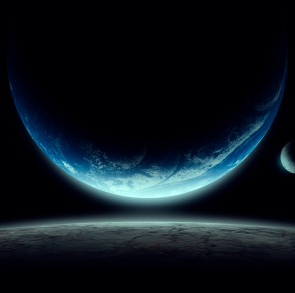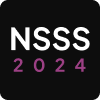ABSTRACT
THE REGISTRATION FEE TO ATTEND THE SYMPOSIUM IS RS. 5000/- EXCLUDING 18% GST. GOA UNIVERSITY GST NO IS 30AAAJG1189Q1Z1
Commencement of registration & Abstract submission
CLOSED
Deadline for Abstract submission
CLOSED
Selection of Abstract for Oral & Poster presentation
8th January 2024
Deadline for payment of Registration & Accommodation fees
31st January 2024
ABSTRACT ACCEPTED
The National Space Science Symposium 2024, will conduct six parallel scientific sessions on different themes of space science and technology including an exclusive students' session to foster young minds. The public lectures, plenary and interdisciplinary lectures, and invited talks will be delivered by experts and professionals in the field. The poster sessions will be conducted over four days providing a platform for early-career researchers to engage in methodical and in-depth discussions.
NSSS 2024 invites abstracts under the following themes
ps1
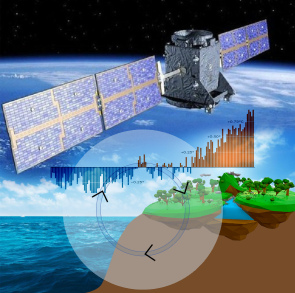
Space-based Meteorology and Oceanography, Geosphere-Biosphere Interactions and Climate Change
Venue: Auditorium, School of Biological Science and Biotechnology
PS-1 focuses on space-based meteorology and monsoons, space-based oceanography, clouds, precipitation, aerosols and trace gases from space-based observations, aerosol-climate interactions from observations and modelling, trace gases (including greenhouse gases) and climate from observations and modelling, radar-based studies of clouds, precipitation, and winds, innovative retrieval techniques and radiative transfer for atmospheric observations from space, and studies on upper tropospheric and lower stratospheric processes and climate. In addition to the regular sessions, PS 1 will also organise special breakout sessions towards a roadmap for space-based observations and modelling of climate change and its impacts.
ps2
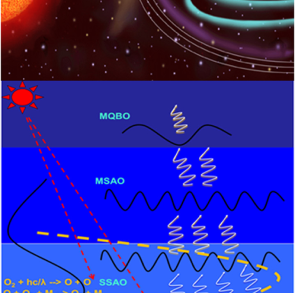
Middle Atmosphere, Ionosphere-Thermosphere-Magnetosphere, Coupling Processes & Space Weather Impact
Venue: Hall A, Ground Floor, GBS
PS-2 welcomes abstracts on experiments, in-situ observations, remote sensing and
modelling in the following areas: atmospheric waves and variabilities; wave
propagation, wave-wave and wave-mean flow interactions; vertical and lateral coupling
of the atmosphere; middle atmospheric dynamics, minor constituents and long-term
changes; ionosphere-thermosphere system and its forcing through the middle
atmosphere; Impact of space weather on ionosphere-thermosphere-magnetosphere
and prediction; Space weather effects on satellite-based navigation and
communication.
PS-2 also shall discuss new spaceborne payloads/measurements and experiments to
be taken up at the national level. Focused discussions on important scientific themes to
be addressed urgently and collectively shall be proposed for consideration as special or
breakout sessions.
ps3
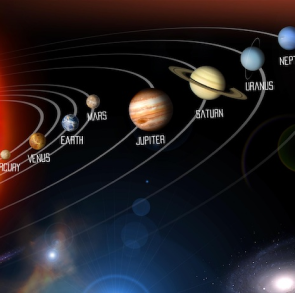
Solar and Planetary Sciences
Venue: Hall B, Ground Floor, GBS
This session is devoted to discuss recent advances in Solar physics and Planetary
sciences. The broad topics of interest are: solar atmosphere, solar flares, CME, and
helioseismology; composition and surface/subsurface properties of planetary bodies;
composition, structure and dynamics of planetary atmosphere, ionosphere and
magnetosphere; planetary space environments and weather, Lunar composition and
atmosphere; Sun-planet relation including solar wind-planetary ionosphere and
magnetosphere interaction. Studies based on ground/space-based observations and
modelling, including design/development of new ground-based experiments/new space-
borne payloads and new ideas on space-based mission/ground-based experimental
facility are solicited for presentation in this session. The session also encourages
presentation of results from the recent Indian missions.
PS-3 shall also hold special sessions on future planetary missions, including the
scientific issues to be addressed, their relevance and methods to resolve them.
ps4
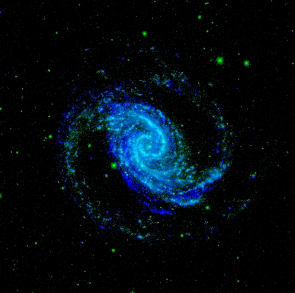
Astronomy and Astrophysics
Venue: Hall C, First Floor, GBS
PS-4 invites abstracts on research and developments and latest findings in astronomy and astrophysics, including space based and ground based observations,
instrumentation, theoretical studies, modeling, astrobiology and chemistry.
PS-4 shall also discuss the scientific accomplishments of ASTROSAT and future
astronomy missions and experiments to be taken up nationally. Special or breakout
sessions may be proposed for discussions on specific science themes.
ps5
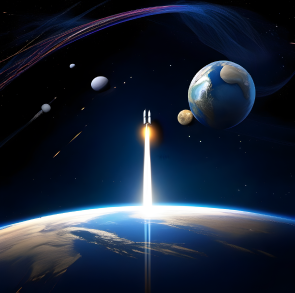
Enabling Technologies for Space Exploration
Venue: Auditorium, School of Chemical Sciences
PS-5 will primarily focus on the development of novel space technologies, engineering solutions, instrumentation, and visions thereof that will serve as building blocks to foster and drive other innovations to enable India’s future space explorations.
Abstracts are invited from researchers in the Indian academia and space enterprises
including startups in the domains of, but not limited to, quantum technologies, space
robotics, space debris, remote sensing of earth and planetary bodies, planetary
resources and mining, sustainable space, spacecraft systems, navigation, sensors,
applications of AI and ML in space science and technology, propulsion, materials,
energy systems, human exploration of deep space, space habitat and life support
systems, among others.
Sponsored exhibitions by industries and startups are also solicited.
ps6
